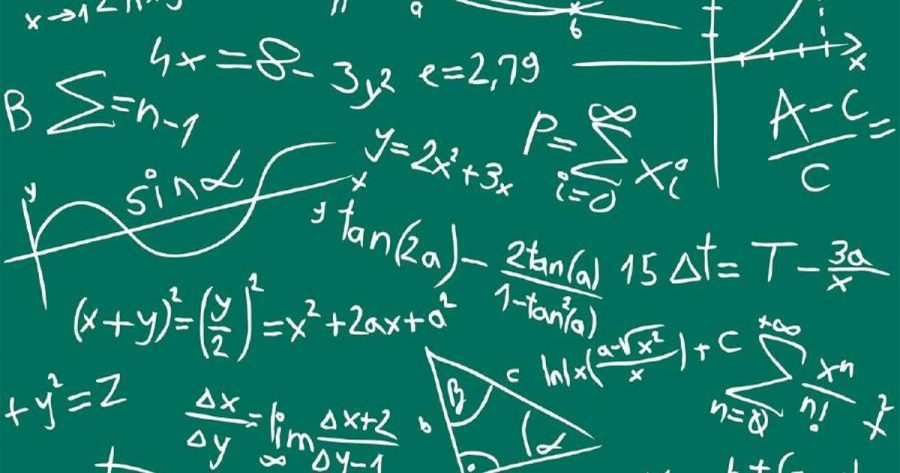Nina Burik
Those who attended Latin’s middle school likely recall the notorious math split of sixth grade. This divide placed students into one of two math tracks: Pre-Algebra or Accelerated Pre-Algebra, based on their performance on a placement test, their ERB results, and teacher recommendations. In the remaining years of middle school, students followed their assigned math track until they took another placement test in eighth grade. This exam decided the student’s future courses in high school. But what factors contribute to the initial decision in sixth grade, and how does that placement affect a student’s mathematical opportunity compared to their classmates in high school?
Mrs. Bonneau, the head of the middle school’s math department, made it is clear that although students take the placement test in fifth grade, it is really their lower school experience with math that sets the tone for their quantitative understanding of the subject. She points to the apparent gender gap within advanced math classes at Latin as an example. “When teachers say, ‘I’m not that good at math,’ their female students may become discouraged or feel that women cannot excel in the subject,” said Mrs. Bonneau. Not only are these inaccurate stereotypes conveyed to girls at an early age by teachers, but they are also taught at home. “If a mom tells her daughter that ‘your dad is the math person,’ it can affect a girl’s confidence in her math abilities, and therefore her performance on the placement test.”
However, the lower school is certainly making strides to improve this issue. In the hopes of bettering the assertiveness of girls in lower school math classes, teachers have begun to pose a question to the class and let it go unanswered for a while. This allows for students who may be slower or quieter, yet just as capable, to gain self-assurance in their mathematical abilities. Although there are several changes being made to the ways in which math is taught to young students, it will be hard to interpret their effectiveness until the fifth-grade placement test.
In an attempt to identify such trends in high school math classes, in 2018, Lauren Salzman undertook a capstone project as a teacher’s assistant in Mr. McArthur’s Honors Algebra 2 courses. Throughout the year, she collected data on several factors in the class such as “math anxiety” scores, female versus male contributions in class, overall gender gap in advanced math classes, and the success rate of students who attended Latin for middle school compared to those who did not go to Latin’s middle school. Though all of Lauren’s findings are revealing, this last discovery was probably the most startling. Based on her data, students who were new to Latin their freshman year of high school earned better grades in Honors Algebra 2 than those who came from Latin’s middle school.
Some argue that Latin’s math placement process itself is at the root of the issue. Junior Ronil Awalegaonkar, who came to Latin in 8th grade and is currently taking Calculus BC, said, “Since I came from the middle school, the transition was seamless between middle school and high school math classes, however I’ve seen that for incoming freshmen that were new to Latin, especially those who were adept in their math skills, they were under placed in their math classes and that’s prevented them from taking the most advanced math classes that they can.”
However, others contend that the disparity says little about math placement at Latin and argue that the grade difference only indicates how intelligent incoming freshmen from other schools are. As Mr. McArthur explained, it is not to say that students from the middle school are less prepared for the honors course, rather “the students we bring in as new freshmen are often the absolute best math students in their school, from all over the city.” There are so many worthy applicants for high school, that often the students admitted exhibit some form of “off-the-chart math understanding, even if they haven’t taken advanced math classes,” Mr. McArthur said.
Although it seems that a student’s mathematical fate at Latin is dependent on their fifth grade placement test, in reality it is just that: a test. Latin offers students many other opportunities to excel in math, regardless of the track they have been put on in middle school. The beauty of Latin is that arrangements can always be made to best suit a student’s mathematical drive–something that cannot be measured on an assessment. Thus, while the math placement test in middle school does affect a student’s future in high school, it certainly does not limit their potential.
Categories:
On the Supposed Inequities of Math Placements
October 4, 2019
2
0

















































Robert Igbokwe • Oct 6, 2019 at 10:01 am
Spectacular article, Nina!! 🙂 🙂 I’m particularly glad that you acknowledged how the way math is portrayed to young children can affect their future with math in general. This was such a well-written and thought-provoking article!!
Zach McArthur • Oct 4, 2019 at 2:08 pm
Great article, Nina. You’re a fine writer in addition to being an excellent math student!